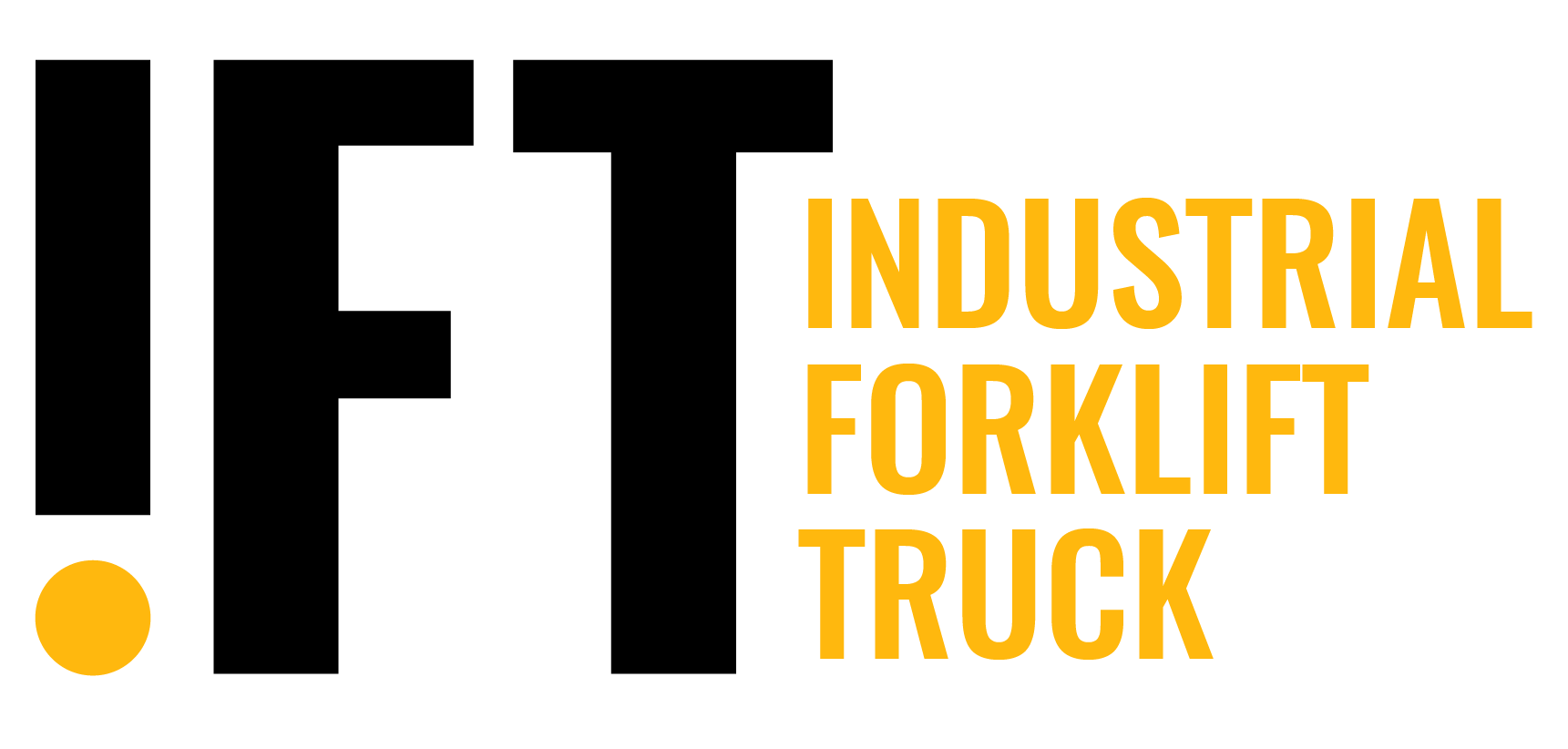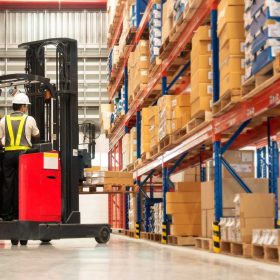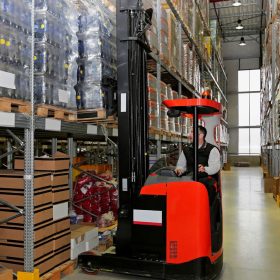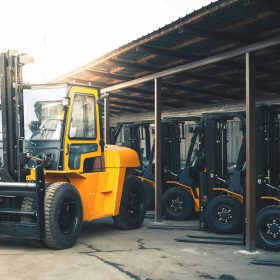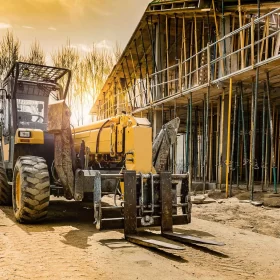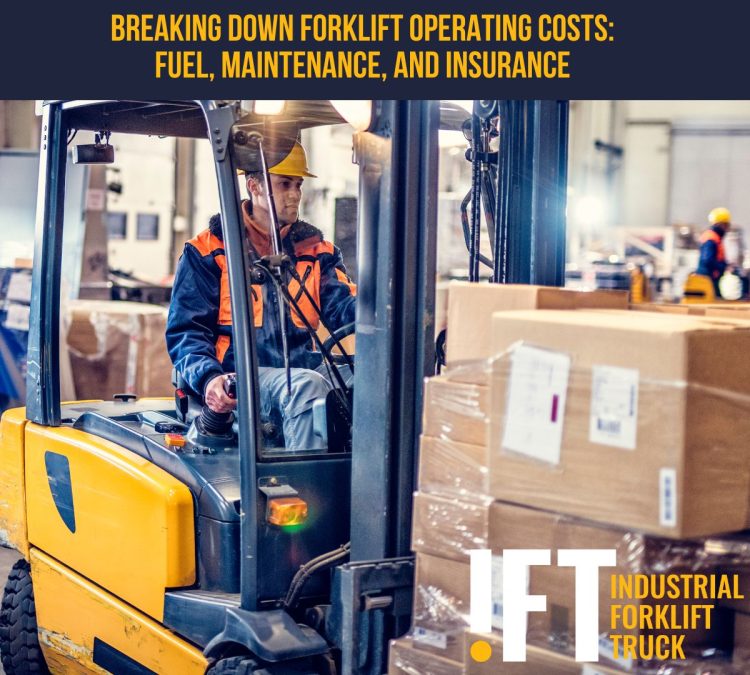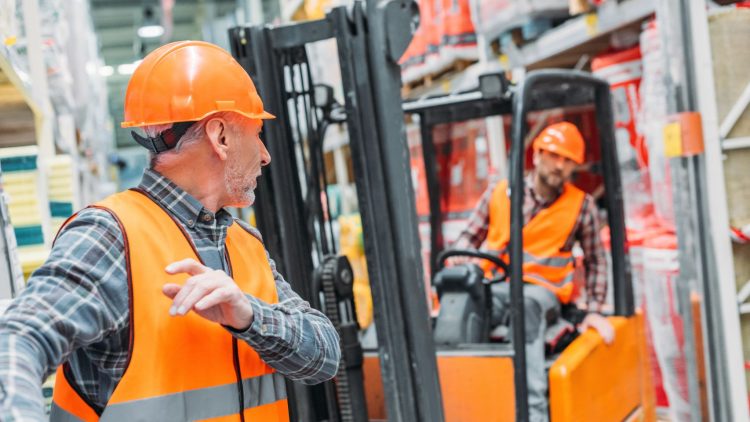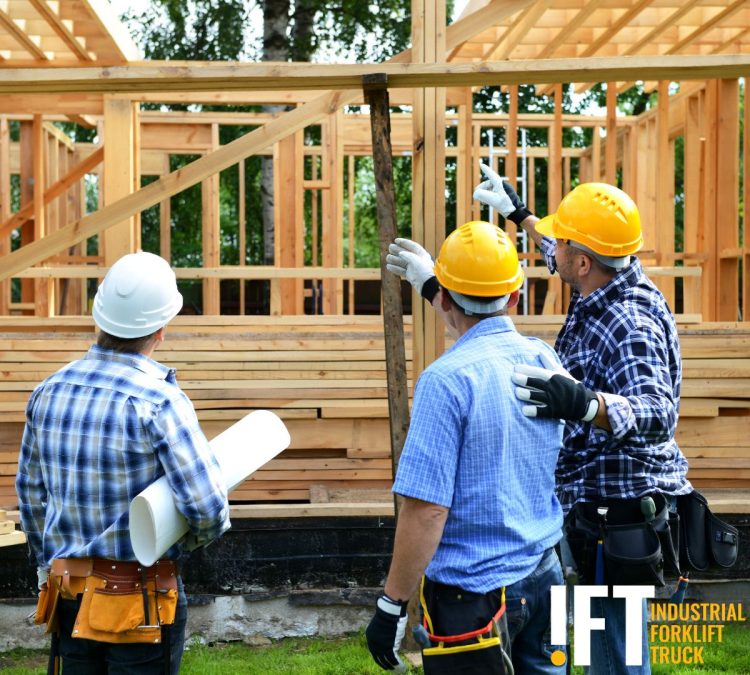Receive pricing on forklifts from top dealers in your area easily in one place.
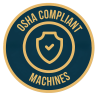
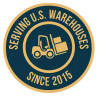

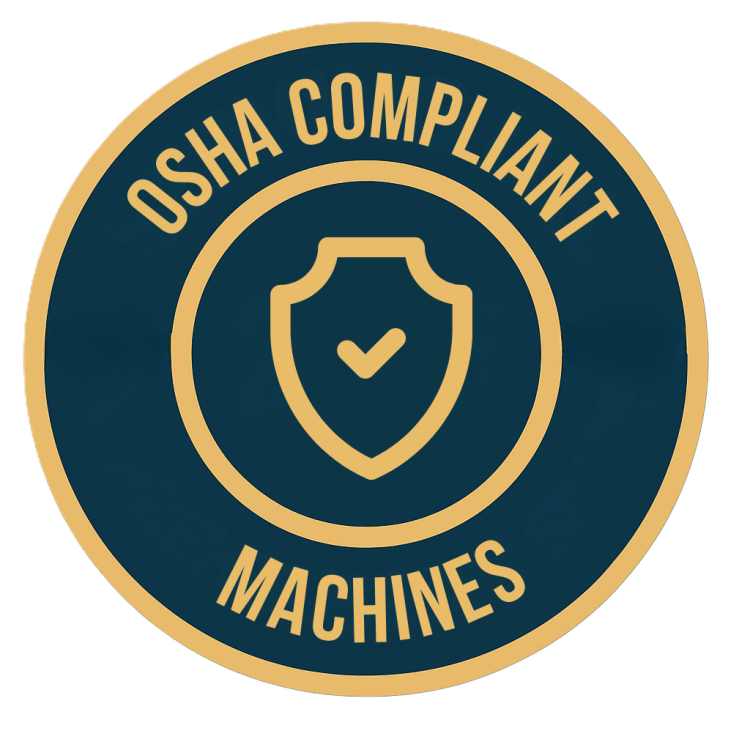
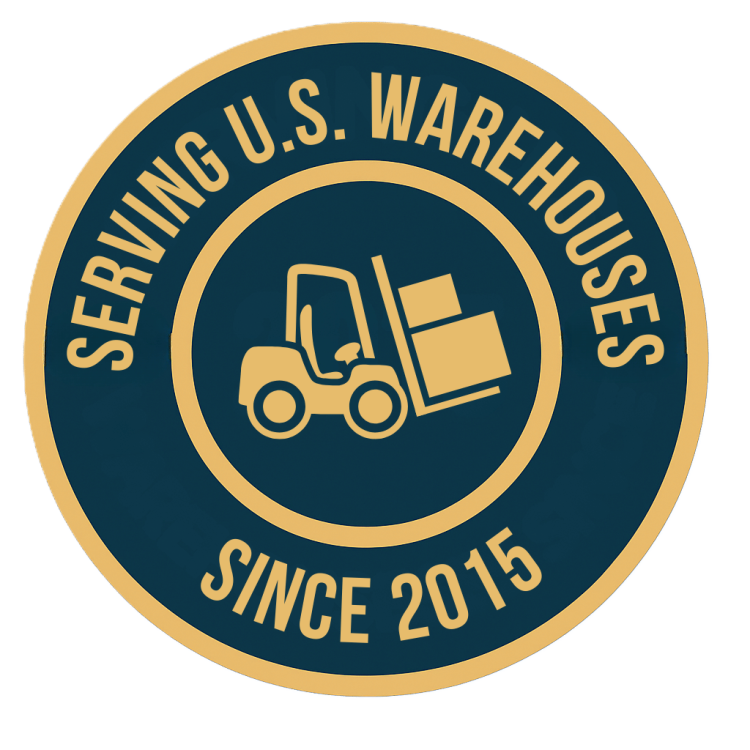

Forklifts are powered industrial trucks used to lift, move, and store heavy loads of materials in industries like warehouses, construction, manufacturing, and retail. They increase the speed and safety of material handling in the workplace, boosting efficiency and reducing manual labor risks.
- Combine strength, mobility, and precision handling in one compact machine
- Available in sit-down, stand-up, and narrow-aisle models
- Flexible fuel options, including electric, gas, or propane models
- Adaptable for indoor, outdoor, and rough-terrain uses
- Average price: $20,000-$60,000 (new) or $8,000-$25,000 (used)
Forklift vehicles are designed to lift and transport heavy loads safely and efficiently. They’re essential to operations across industries like logistics, retail distribution, manufacturing, and construction.
Whether you’re stacking pallets in a tight warehouse or unloading heavy materials at a job site, forklift machines deliver the power and efficiency that manual labor can’t match.
Reduced Downtime: Lift more loads per hour than manual methods.
Enhanced Safety: Reduce manual strain and offer built-in safety features to protect operators.
Versatility: Offer flexibility for indoor and outdoor environments.
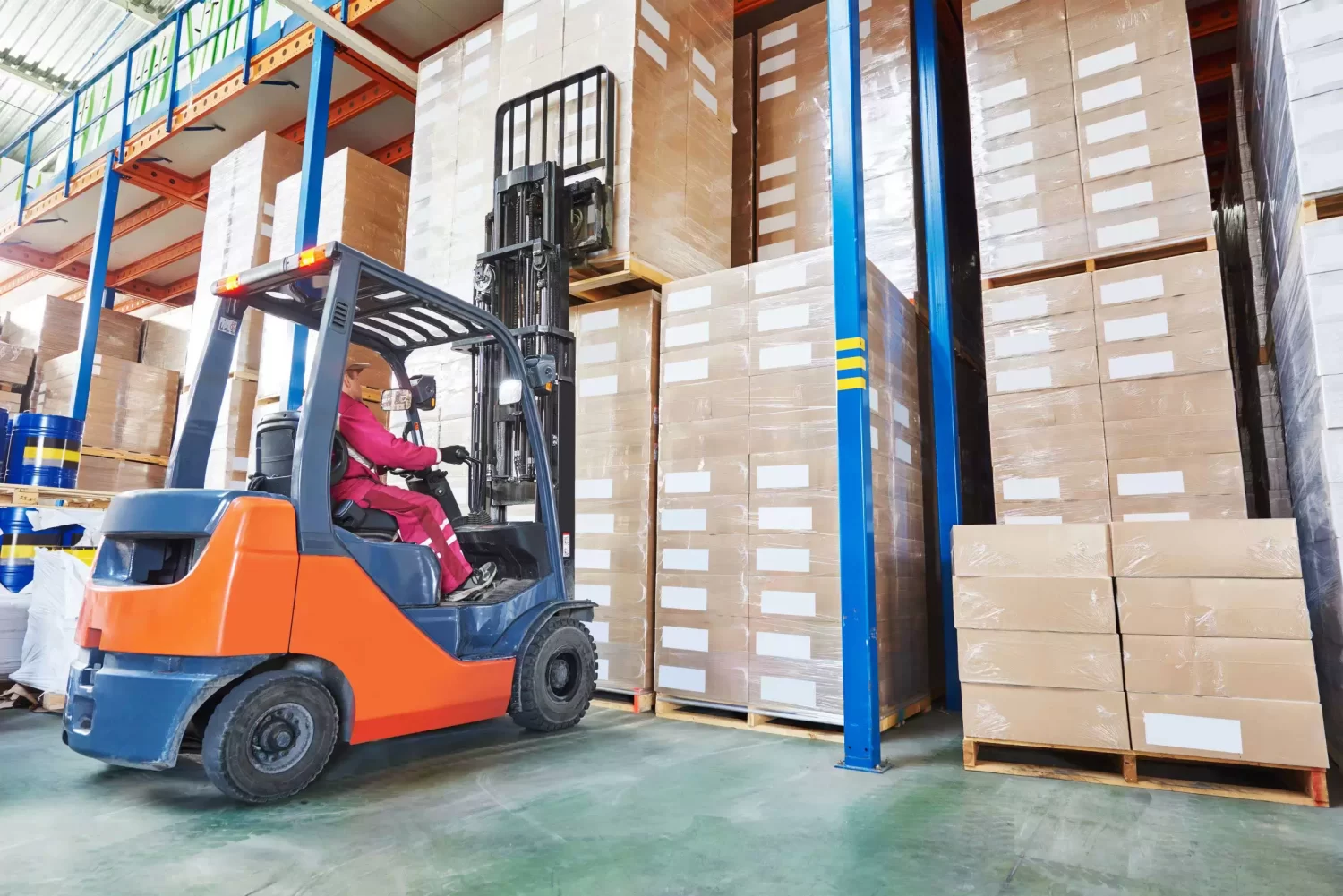
-
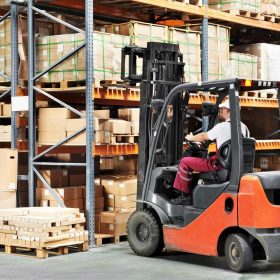 Counterbalance ForkliftStandard warehouse and dock workhorse
Counterbalance ForkliftStandard warehouse and dock workhorse -
Reach TruckNarrow-aisle lifting to 30+ feet
-
Order PickerIdeal for eCommerce and warehouse picking
-
Rough Terrain ForkliftOutdoor sites with uneven ground
-
TelehandlerCombines forklift and crane reach for construction
Not all forklifts are designed for the same environment. Choosing between an indoor or outdoor model depends on your facility type, flooring surface, load requirements, and fuel preferences. Here’s how they compare:
Gas/diesel forklifts are designed for heavy-duty performance and outdoor environments. They excel at handling very heavy loads and performing on uneven or rough terrain where stability and power are crucial.
Because they run on liquid fuel, gas/diesel forklifts can operate for long stretches without downtime. Refueling is faster than recharging a battery, which makes them efficient for demanding operations that require continuous use. The primary trade-off is higher emissions, which makes them less suitable for using indoors.
- Construction
- Lumber
- Agriculture & Farming
- Shipping
- Heavy Manufacturing
- Scrap/Construction Yards
- Large-Scale Job Sites
- Ports/Freight Yards
Electric forklifts are battery-powered machines that dominate indoor applications. They are most common in warehouse jobs with strict clean air requirements because they emit zero emissions, making them much safer to operate indoors compared to their fuel-powered alternatives.
While the upfront costs of electric forklifts are higher, these models typically offer long-term cost savings from reduced fuel expenses and lower maintenance requirements. Their main trade-off is that their power — they aren’t suited for operating over rough, uneven terrains, which limits their use to indoors.
- Food & Beverage
- Retail & Grocery
- Pharmaceutical & Healthcare
- Warehousing & Distribution
- Food Storage
- Order Fulfillment Centers
- Narrow Aisles
- Logistics Hubs
Propane forklifts offer a hybrid solution for businesses that need versatility for indoor and outdoor use. They run on liquid propane, which is cleaner than burning diesel for indoor operations, but still powerful enough to move heavy loads outdoors on rough terrain.
Unlike electric models which can lose power as battery levels decline, propane forklifts offer consistent power levels throughout the entire shift. When tanks are empty, they can be swapped out for a new one in a matter of minutes, allowing for minimal downtime in 24/7 uptime operations.
The main downside to these forklift models is the ongoing cost of fuel, but their flexibility to be used indoors and outdoors usually outweighs that trade-off.
- Manufacturing
- Wholesale & Distribution
- Logistics & Freight
- Food & Beverage (*with proper ventilation)
- Retail Warehouses
- Warehouses with Ventilation
- Outdoor Yards
- Cross Docks
- Indoor/Outdoor Operations
| Type | New Price Range | Used Price Range | Lease (Monthly) |
|---|---|---|---|
| Electric Sit-Downs | $25,000–$35,000 | $10,000–$15,000 | $350-$600 |
| Propane | $20,000-$30,000 | $8,000–$12,000 | $300-$550 |
| Gas/Diesel | $30,000–$60,000 | $15,000–$25,000 | $500-$800 |
Forklift prices vary depending on size, fuel type, and whether you buy new, used, or lease. Compare quotes on the equipment type you need using Industrial Forklift Truck.
Forklifts are used for a range of material handling jobs in industries like logistics, warehousing, retail, construction, and manufacturing.
With proper maintenance, most forklifts can last between 10,000–15,000 hours.
Yes, OSHA requires forklift operators to complete a safety training and earn a certification for the type of forklift they'll be driving. Recertifications are required every 3 years (sometimes sooner if the operator is cited for violating safety standards).
It depends on your goals. Leasing lowers upfront costs, which is great for temporary or short-term jobs, but buying can offer higher savings in the long-run, especially if ownership plans are in your future.
Electric forklifts are powered by a rechargeable battery, eliminating harmful emissions during operation. This makes them a powerful option for indoor applications, especially sensitive ones with strict low- or no-emission requirements.
Propane forklift models are powered by liquid propane. They can be used indoors in facilities with good ventilation, but they're most ideal in mixed use facilities because they're rugged. They can operate with consistent power for longer periods of time when used outdoors.
- May 2, 2025
- March 20, 2025
